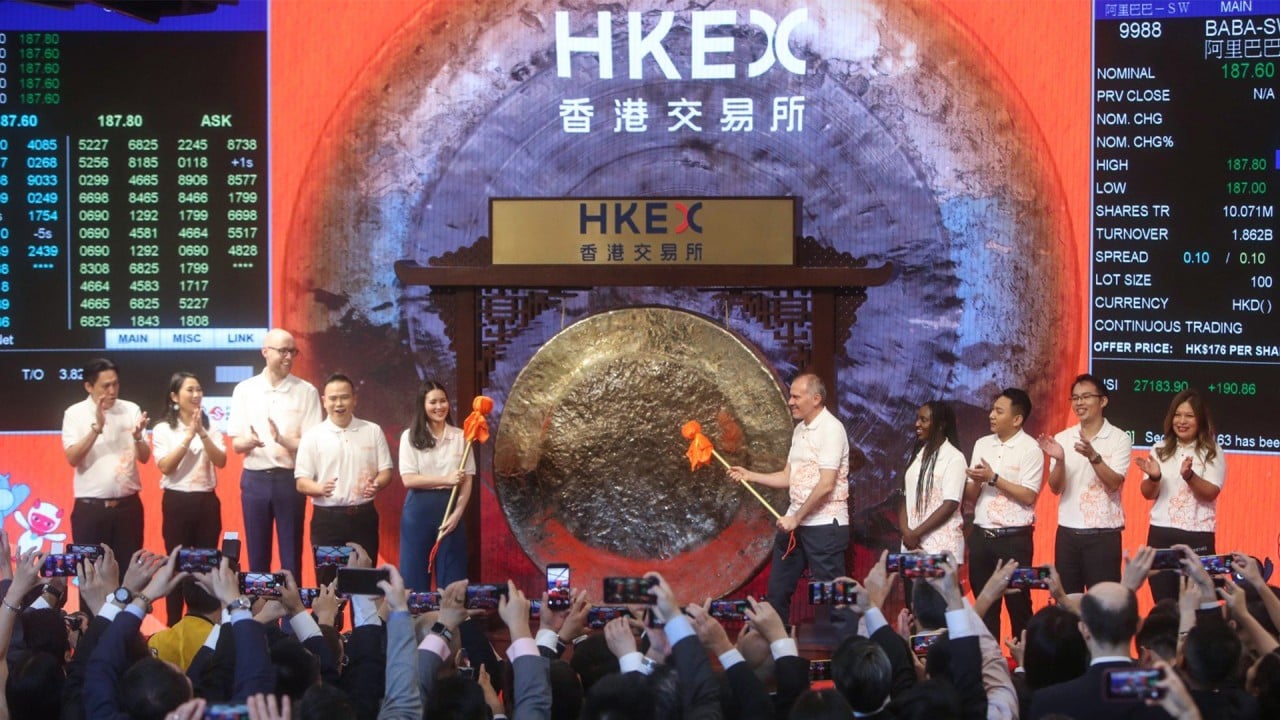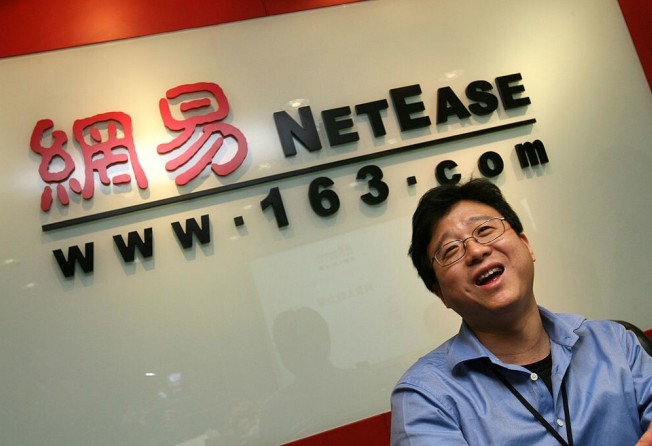
02:02
Chinese e-commerce giant Alibaba starts trading on Hong Kong stock exchange

Chinese tech giants JD.com and NetEase could raise a combined US$6 billion in a pair of blockbuster secondary listings in Hong Kong as tensions continue to rise between the United States and China.
NetEase, the world’s second-largest mobile games publisher, priced its Hong Kong secondary listing at HK$123 (US$15.87) a share, gathering commitments worth US$2.7 billion ahead of its debut in the financial hub on June 11, people familiar with the deal said on Friday.
Guangzhou-headquartered NetEase amassed enough pledges from investors to cover the offer multiple times, the people added.
The price represents a tight 2 per cent discount to the last closing price of NetEase’s depositary receipts of US$405 on Thursday and a 3.1 per cent discount to the one-day volume-weighted average price of US$412.67.

02:02
Chinese e-commerce giant Alibaba starts trading on Hong Kong stock exchange
Investors’ take-up of the sale bodes well for e-commerce giant JD.com, which plans to raise up to US$4.1 billion in its own secondary listing in the city.
According to a term sheet seen by the South China Morning Post, JD.com plans to sell 133 million shares at a maximum price of HK$236 a share, which would represent a 7.8 per cent premium to the closing price of its American depositary receipts on Thursday. JD.com confidentially filed an application for the listing in Hong Kong in April and followed it with a heavily redacted preliminary prospectus on Friday.
NetEase and JD.com are racing to complete their secondary listings this month amid strong demand among investors for technology listings and before the US stance on Chinese companies trading on its markets hardens further.
US President Donald Trump is dialling up anti-China rhetoric ahead of seeking a second term in November, pushing more Chinese technology firms to consider a secondary-listing closer to home. Hong Kong’s exchange is putting on a full-court press to attract them.
Last month, the US Senate passed legislation that could force Chinese and other foreign companies to delist unless they submit to audits by the Public Company Accounting Oversight Board, which examines the books of all publicly listed US companies. The China Securities Regulatory Commission is evaluating whether to allow US-listed mainland companies to face such audits.
NetEase’s US$2.7 billion in hand could rise to US$3 billion if an overallotment option is exercised, according to a deal terms sheet. The deal is almost entirely aimed at international investors with just 3 per cent reserved for a Hong Kong public offer.
The international tranche was more than 10 times oversubscribed by a range of investors, including sovereign wealth funds, long-only funds and China-based investors. The Hong Kong public offering was 360 times oversubscribed, the people said.
Investors’ interest was piqued by the 32 per cent rise in NetEase’s ADRs to near record highs. The creator of “Fantasy Westward Journey” has also benefited from people in quarantine around the world buying more of its games.
Their offerings follow e-commerce giant and JD.com rival Alibaba Group Holding’ US$12.9 billion secondary listing in the city last year. Alibaba is the parent company of the South China Morning Post.
Hong Kong Exchanges and Clearing (HKEX) radically overhauled its listing rules in 2018 to allow technology firms with dual-class shares and pre-revenue biotechnology companies to list in the city.
The bourse has proposed further changes to its rules to allow more use of so-called weighed- voting rights (WVR) shares as it tries to lure more US-listed mainland technology firms to come to Hong Kong, particularly as tensions have risen between the US and China.
At least 38 US-listed mainland tech giants, including Tencent Music, would not currently qualify to list in Hong Kong because they have corporate shareholders with a WVR structure, which are allowed by bourse rivals in the US and Singapore.
There are more than 200 Chinese firms with primary listings in the US, with an aggregate market cap of about US$1 trillion.